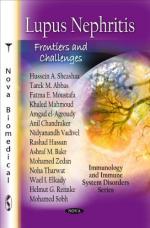|
This section contains 535 words (approx. 2 pages at 300 words per page) |

|
Nephritis is inflammation of the kidney. The most common form, glomerulonephritis, affects children and teenagers far more often than adults. It is inflammation of the glomeruli, small round filters located in the kidney. Pyelonephritis affects adults more than children, and is recognized as inflammation of the kidney and upper urinary tract. A third type of nephritis is hereditary nephritis, a rare inherited condition.
Acute glomerulonephritis usually develops a few weeks after a strep infection of the throat or skin. Symptoms of glomerulonephritis include fatigue, high blood pressure, and swelling (especially in the hands, feet, ankles and face). Ninety percent of children with glomerulonephritis recover without complications. With proper medical treatment, symptoms usually subside within a few weeks, or at the most, a few months. Treatment normally includes drugs such as cortisone or cytotoxic drugs (drugs that destroy certain cells or antigens). Diuretics may be prescribed to increase urination...
|
This section contains 535 words (approx. 2 pages at 300 words per page) |

|


